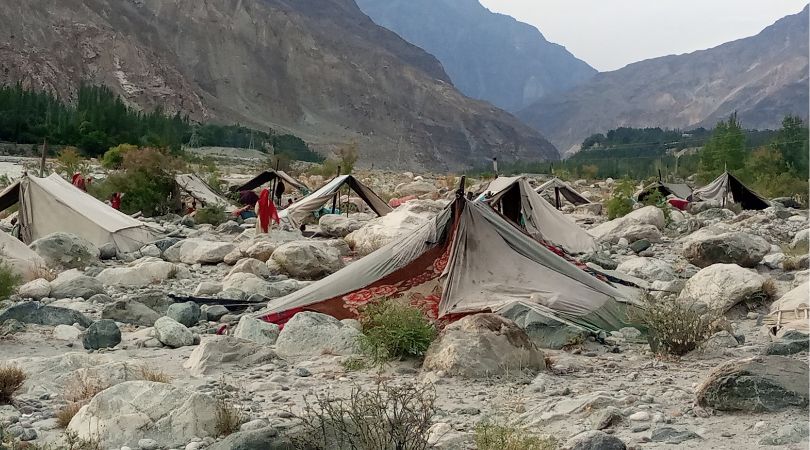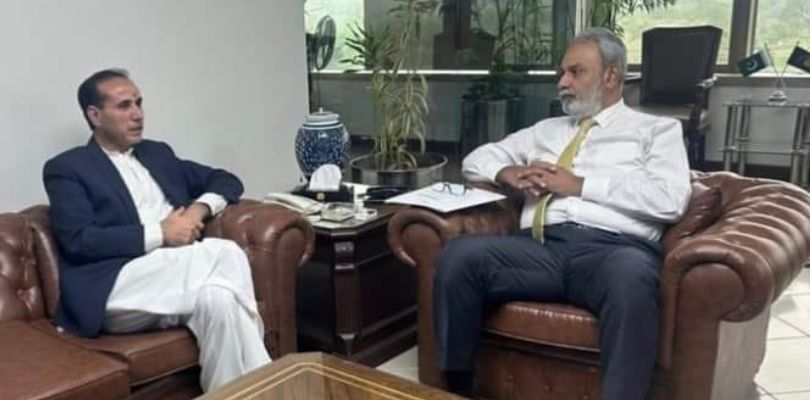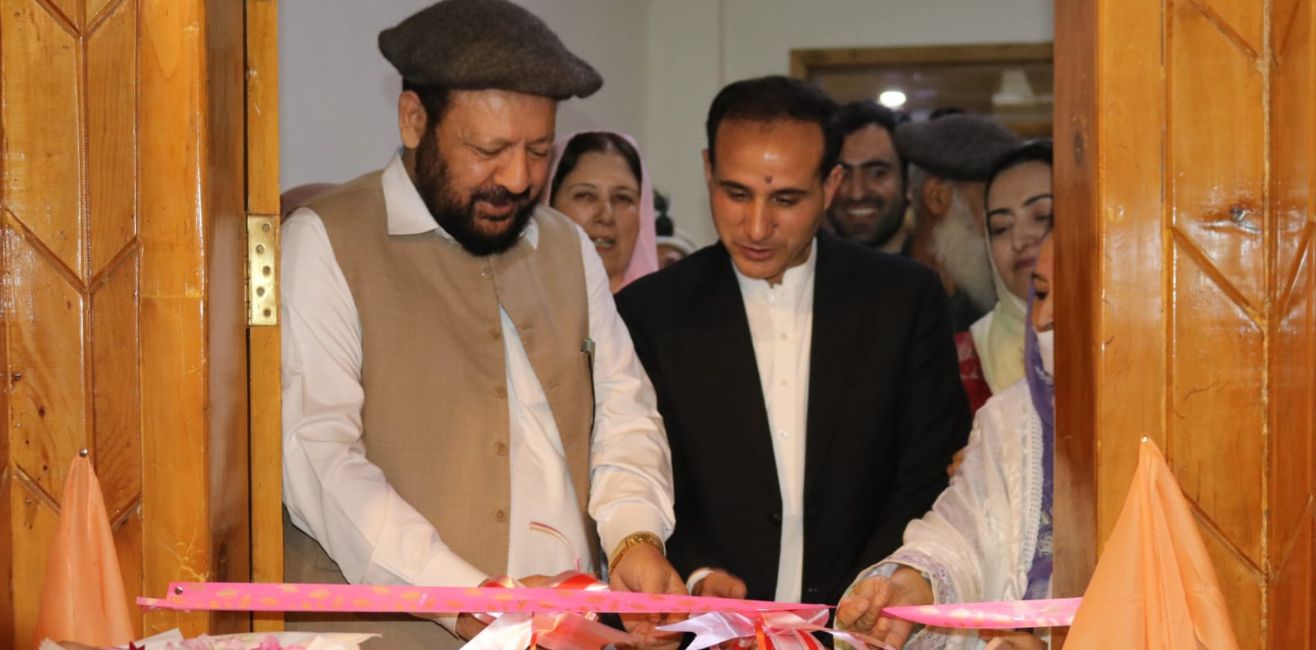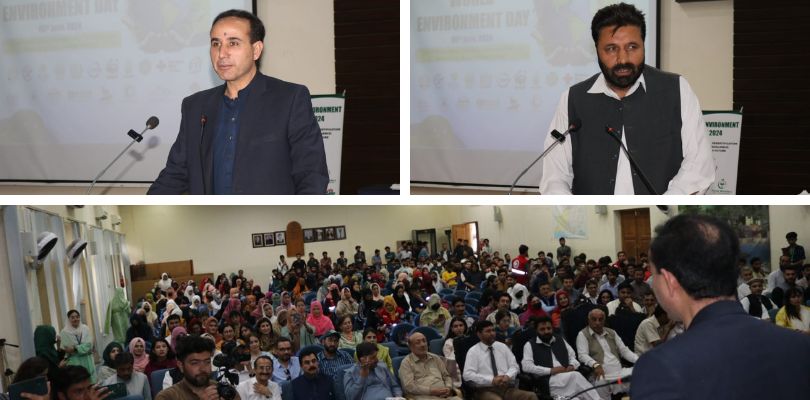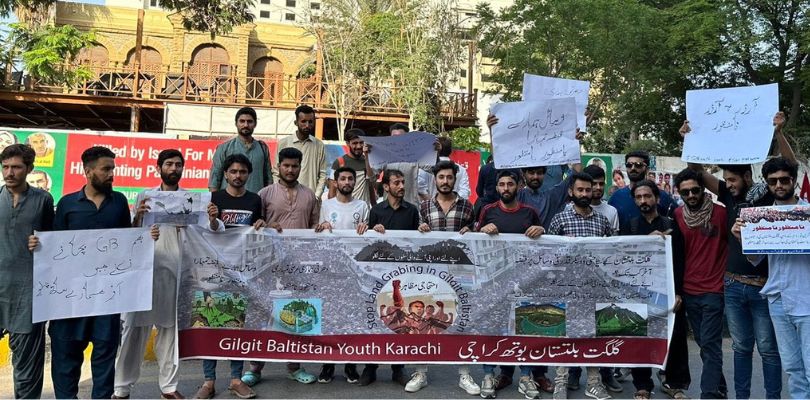By Shakeel Ahmad
For a long time, I was longing to meet and inquire about the people residing in makeshift shelters alongside the Indus River, enduring the scorching heat of summer and spine-chilling cold of winter. Locally known as “SOONEWAAL (gold collectors)”, their unique way of living and resilience intrigued me to explore them and learn about their livelihood, profession, background, and disparities they face. Consequently, I planned a visit to the riverside at Rahim Abad Gilgit where several Soniwal families resided.
I carried sweets for the young children inhabiting the makeshift tent life, who are often seen on the streets, engaged in begging, and collecting garbage. As I got closer, a smart young boy caught my eye, gazing at me with curiosity. I waved my hand at him, and without giving it a second thought, he came to me barefoot.
His bright, shimmering eyes sparkled from a tanned face, revealing a row of white teeth. I greeted him, introduced myself, and sought his permission to discuss his way of life. He welcomed me delightedly and gave his consent, stating, “Certainly, we can sit and have a talk.” He was a man of medium height with a fair complexion, but due to poverty, his attire appeared untidy.
My first question was, ‘Can you speak Urdu?’ He smiled again and replied, ‘Yes, definitely!’ Meanwhile, I opened my diary, and we sat on the stones near the rushing Hunza River to begin our discussion.
Me: Would you kindly introduce yourself?
Gold collector: My name is Riaz. I am 32 years old. I am from Juglot, Gilgit. I have three brothers, and I am the eldest. I am married and have five children. I lost my seven-year-old son two years ago. He was playing by the riverside, fell into the river, and lost his life.
Me: “I’m so sorry to hear that. May his soul rest in peace, Ameen.”
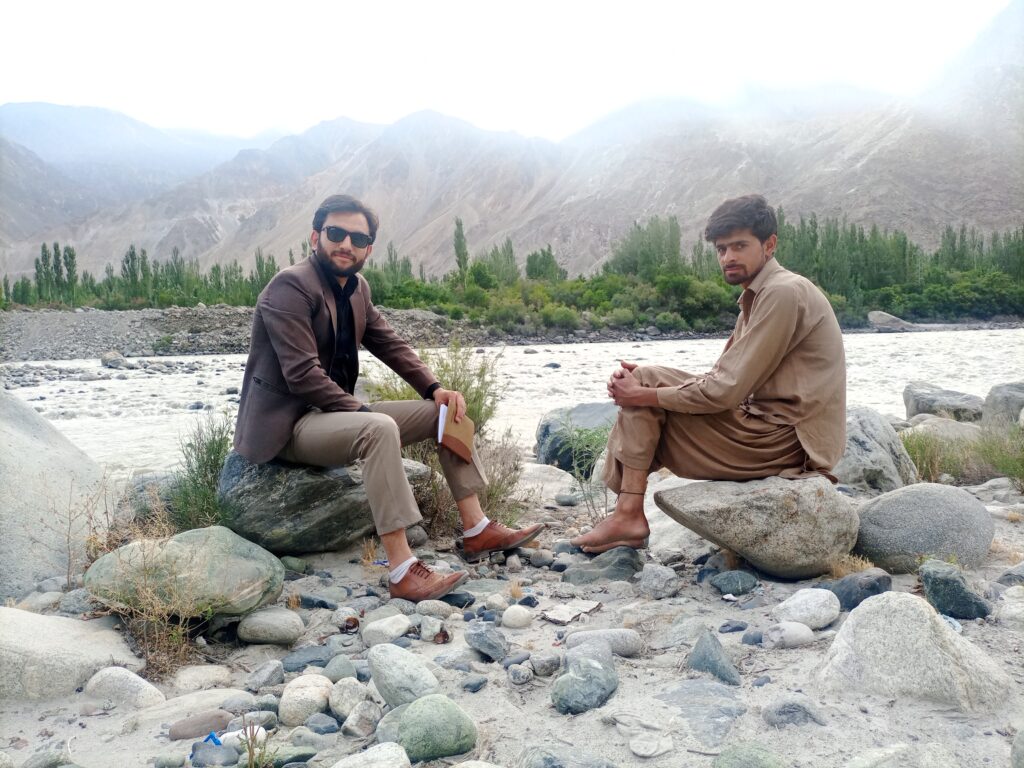
Gold collector: “It’s all in God’s hands.
Me: Tell me about your background. When did you start working in this field?
Gold collector: It is our ancestral profession. My forefathers used to be gold collectors, and later, my father also worked in this field. However, due to deteriorating health, he had to quit, and nowadays, he stays at home, suffering from prostate gland enlargement. Initially, many people in my village were involved in this, but they abandoned it over time because it requires strenuous efforts and perseverance to stay in these worn-out tents and engage with river water throughout the year.
Me: Do you own land and houses back in your village?
Gold collector: Speaking specifically about myself, I don’t have such properties. Some people do own land and personal houses in the village, but most of us are homeless. This mighty river is our sole source of income.
Me: How do you determine if there is gold in the water? What strategy do you use?
Gold collector: For that purpose, we have a small wooden tray. We put sand and water on it, and keep shaking it. In the final stage, if we find sand and gold particles left behind, then it’s a positive sign. Otherwise, we don’t waste our time and energy in that place.”
Me: In which part of Gilgit-Baltistan is there a good quantity of gold in the river?
Gold collector: In Bagrote Valley and Nagar Valley, it is found in abundance. Secondly, it depends on the quantity of water as well. In summer, it’s hard to find gold in the river, but after September and October, when the water level goes down, that is a perfect season for us.”
I inherited the profession of gold collecting from my forefathers. However, many have quit due to the demanding nature of staying in worn-out tents and working in the river.
Riaz Gold Collector
Me: How long do you plan to stay here in Rahimabad?
Gold collector: It depends. We don’t live permanently in one place. We keep on traveling and changing places. Here, I guess, we will spend about four months, and then hopefully move on to Nagar. Although we travel throughout Gilgit-Baltistan, going to Ghizer, Astore, Nagar, and sometimes even to Broghal Valley. There is a good quantity of gold in Broghal River, but it’s very far away, and the travel cost, around 40 to 50k, is quite costly and unaffordable for people like us.
Me: Many of us believe that you’re in the gold business, and therefore, you must be earning a significant amount since gold is one of the most expensive metals. To what extent is this notion valid?”
Gold collector: Yes, of course, it is a profitable business. However, it’s not as if every day we go to the river and find gold. Sometimes, we come back empty-handed. Moreover, even when we are lucky enough to find gold, it is in trivial quantities after facing a lot of struggle and hardships. Therefore, to meet our day-to-day requirements, we take advance payments from the contractors and later repay them by selling the gold.”
Our elected representatives make promises during elections to provide shelter, but once elected, they don’t engage with us. Visiting their offices for Benazir cards and tents is futile; they don’t permit our entry.
Riaz, Gold collector
Me: Would you mind telling me about your monthly income?
Gold collector: It’s hand to mouth and barely covers our daily expenses in these financially challenging times. If I were to specify the exact amount, it is around 30 to 40k per month. We work along the riverside throughout the week, and every Friday, we sell it in the market.
Me: How do you manage to survive inside these shabby, dilapidated shelters in this scorching weather and cold winters? Isn’t life extremely tough?
Gold collector: There are no words to describe the pain and the hardships we endure. It’s unbearable in both summer and winter. But what can we do? There are no other options. We use solar panels for lighting, and we don’t have mobile phones or other gadgets. It feels like we are still living in an ancient time without basic facilities.
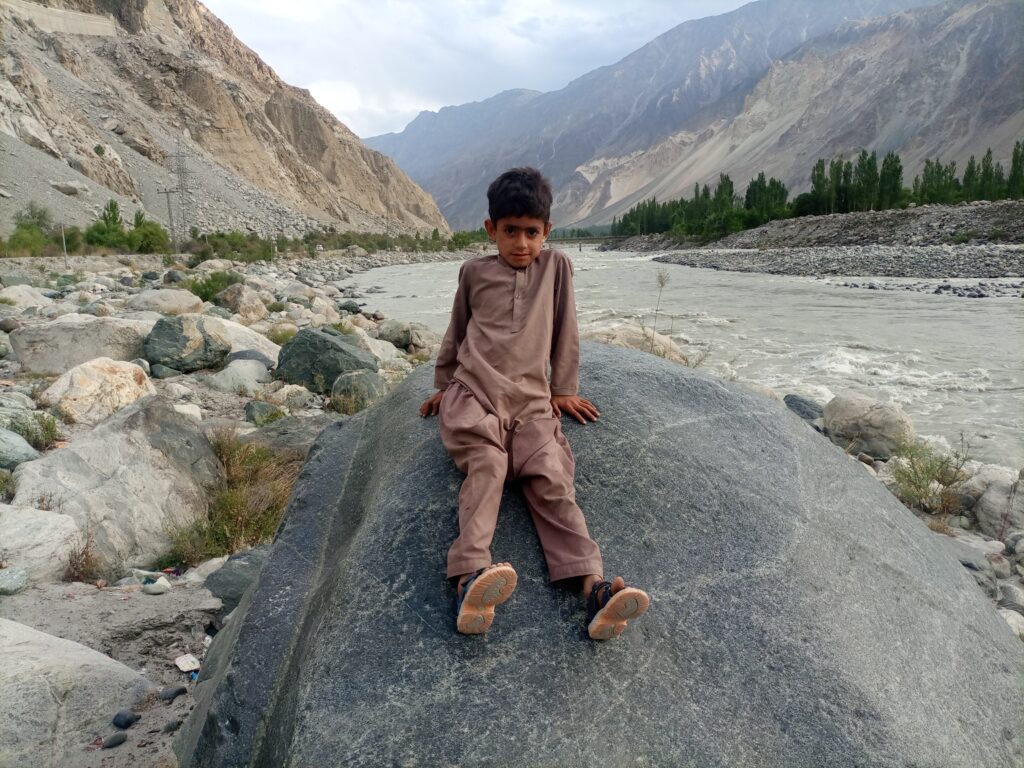
Me: You are very young; how did you get married early and have five children, Mashallah! Don’t you think having two to three children is enough nowadays?”
Gold collector: With a gleaming smile on his face, “I got married at an early age. I prefer conjugal life, as it abstains a person from different sins. As for the second part of your question, I agree with you; fewer children mean less burden. But at the same time, I rely on God Almighty for the safeguard and protection of them, as He is the best custodian and guarantor of every creature.
We keep on traveling and changing places spending about four months at a place.
Riaz, Gold collector
Me: What difficulties do you face in day-to-day matters?”
Gold collector: With a long sigh, I wonder where to start; there are innumerable difficulties we are facing. Firstly, we lack adequate access to basic amenities due to our limited income.
Secondly, our elected representatives do nothing for us. During elections, they frequently visit our torn-out tents, making fake promises of providing shelter, etc. Once elected, they do not bother to talk to us. When we visit their offices for Benazir cards and tents, they don’t allow us inside.
The tents we live in have been purchased from the victims of earthquakes and other disasters. Thirdly, we are not given flour on quota, even though we are the most deserving and needy people in society for subsidies. Purchasing it from the local market is quite costly.
Additionally, in some parts of the river, people do not allow us to stay and work. They ask us to leave and not use the river. There are some other issues as well; I believe this might not be the appropriate platform to discuss them. Anyhow, thank you so much for visiting us and listening to our problems and disparities.
Me: Thank you for your time and talking to us.










